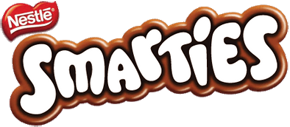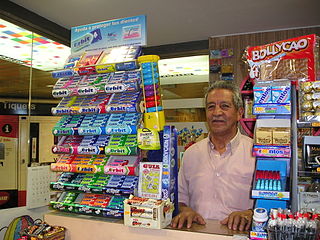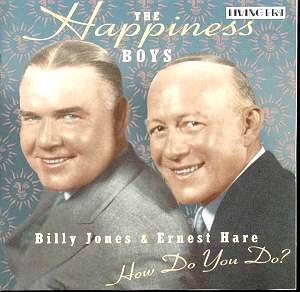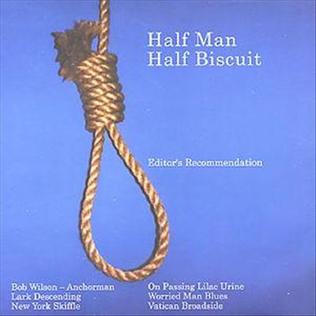This article needs additional citations for verification .(August 2017) |

Spearmint is a flavour that is either naturally or artificially created to taste like the oil of the herbaceous Mentha spicata (spearmint) plant.
This article needs additional citations for verification .(August 2017) |

Spearmint is a flavour that is either naturally or artificially created to taste like the oil of the herbaceous Mentha spicata (spearmint) plant.
The most common uses for spearmint flavor is in chewing gum and toothpaste. However, it is also used in a number of other products, mainly confectionery. It is also popular as a seasonal (usually around St. Patrick's Day) milkshake flavoring in Canada and the U.S.[ citation needed ]
The words "WRIGLEY'S SPEARMINT" are trademarked in the UK. [1] In 1959, skiffle artist Lonnie Donegan renamed his cover version of the 1924 Rose, Breuer, and Bloom song "Does the Spearmint Lose its Flavor on the Bedpost Overnight?" as the BBC, not wanting to risk breaching trademark laws, refused to play it. Donegan renamed the song "Does Your Chewing Gum Lose Its Flavor (On the Bedpost Overnight)", which then went on to become a top-10 hit in the UK and US. [2]
Skiffle is a genre of folk music with influences from American folk music, blues, country, bluegrass, and jazz, generally performed with a mixture of manufactured and homemade or improvised instruments. Originating as a form in the United States in the first half of the 20th century, it became extremely popular in United Kingdom in the 1950s, where it was played by such artists as Lonnie Donegan, The Vipers Skiffle Group, Ken Colyer, and Chas McDevitt. Skiffle was a major part of the early careers of some musicians who later became prominent jazz, pop, blues, folk, and rock performers, The Beatles and Rory Gallagher amongst them. It has been seen as a critical stepping stone to the second British folk revival, the British blues boom, and the British Invasion of American popular music.

Anthony James Donegan, known as Lonnie Donegan, was a British skiffle singer, songwriter and musician, referred to as the "King of Skiffle", who influenced 1960s British pop and rock musicians. Born in Scotland and brought up in England, Donegan began his career in the British trad jazz revival but transitioned to skiffle in the mid 1950s, rising to prominence with a hit recording of the American folk song "Rock Island Line" which helped spur the broader UK skiffle movement.

Juicy Fruit is an American brand of chewing gum made by the Wrigley Company, a U.S. company that since 2008 has been a subsidiary of the privately held Mars, Incorporated. It was introduced in 1893, and in the 21st century the brand name is recognized by 99 percent of Americans, with total sales in 2002 of 153 million units.

The Wm. Wrigley Jr. Company, known as the Wrigley Company, is an American multinational chewing gum company, based in the Global Innovation Center (GIC) in Goose Island, Chicago, Illinois.

King of Skiffle is an album by Lonnie Donegan. A CD version of the album was released in the United Kingdom on 18 February 1998 by Castle Music. The CD was also released by Pickwick under the title The Best of Lonnie Donegan.

Smarties are colour-varied sugar-coated chocolate confectionery. They have been manufactured since 1937, originally by H.I. Rowntree & Company in the United Kingdom, and now by Nestlé.

Orbit is a brand of sugarless chewing gum from the Wrigley Company. In the United States, where it was re-launched in 2001, it is sold in cardboard boxes with 14 individually wrapped pieces per package. In the UK, where it was launched in 1899 it was originally sold as a traditional long-stick gum, later replaced by the same format as the US.

Trident is a brand of sugar-free chewing gum. It was originally introduced by American Chicle shortly before it was bought by Warner-Lambert in 1962, but did not reach the UK until 2007 when it was introduced by its then-owner Cadbury Schweppes in the United Kingdom. In many other European countries, Trident is branded as Stimorol gum; it is generally the same as Trident. The trident is also a symbol of the Greek sea god, Poseidon.
Eclipse is a brand of chewing gum and breath mint, first introduced in the U.S. by the Wrigley Company in 1999 as its first entrant into the pellet gum segment. However, it was modeled after Excel in Canada, which was launched in 1991, eight years before Eclipse was launched.
Freedent is a gum manufactured by Wrigley's. Freedent was first introduced in the US and UK in 1975 and is marketed as the gum that "won't stick to most dental work ." Freedent comes in three flavors: Peppermint, Spearmint, and Winterfresh. It also comes in two package sizes: single packs containing 15 sticks of gum, and multi-packs containing 8 packs of 5 sticks each. Sugar-free versions of Freedent are also available in several countries, including France.
Aspergum is the United States trademark name for an analgesic chewing gum, whose active ingredient is aspirin. Aspergum is owned by Retrobrands USA LLC.

5 is a brand of sugar-free chewing gum that is manufactured by the Wrigley Company, marketed toward teenagers. The name "5" hints at the five human senses and that it has 5 calories.

The Happiness Boys was a popular radio program of the early 1920s. It featured the vocal duo of tenor Billy Jones (1889-1940) and bass/baritone Ernie Hare (1883-1939), who sang novelty songs.
"Does Your Chewing Gum Lose Its Flavour " is a novelty song by Lonnie Donegan. Released as a single in 1959, it entered the UK Singles Chart on 6 February 1959 and peaked at number three. It was also Donegan's greatest chart success in the United States, reaching number five on the Billboard Hot 100 chart in 1961.

Stride is a brand of sugar-free chewing gum created by Cadbury, sold in packs of 14 pieces. It was introduced in May 2006.

A jam sandwich is usually composed of two slices of bread with jam in the middle. It is normally consumed at lunchtime or as a snack. In Scotland, they are also known as pieces and jam, or jeely pieces.

Dr. Demento 20th Anniversary Collection is a release by radio disc jockey Dr. Demento to celebrate 20 years since the beginning of his radio career and novelty song show. It covers many of the novelty and comedy songs from the 1950s to the 1980s, such as Does Your Chewing Gum Lose Its Flavour by Lonnie Donegan & His Skiffle Group, to the then recent release of Eat It by "Weird Al" Yankovic, whose popularity was boosted by Demento.

All Hung Up is a 1968 album by the music group The Irish Rovers.

Editor's Recommendation is a 2001 extended play CD by Birkenhead-based indie band Half Man Half Biscuit.